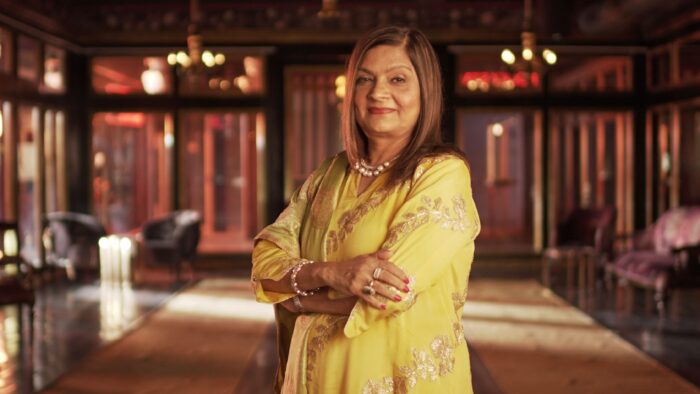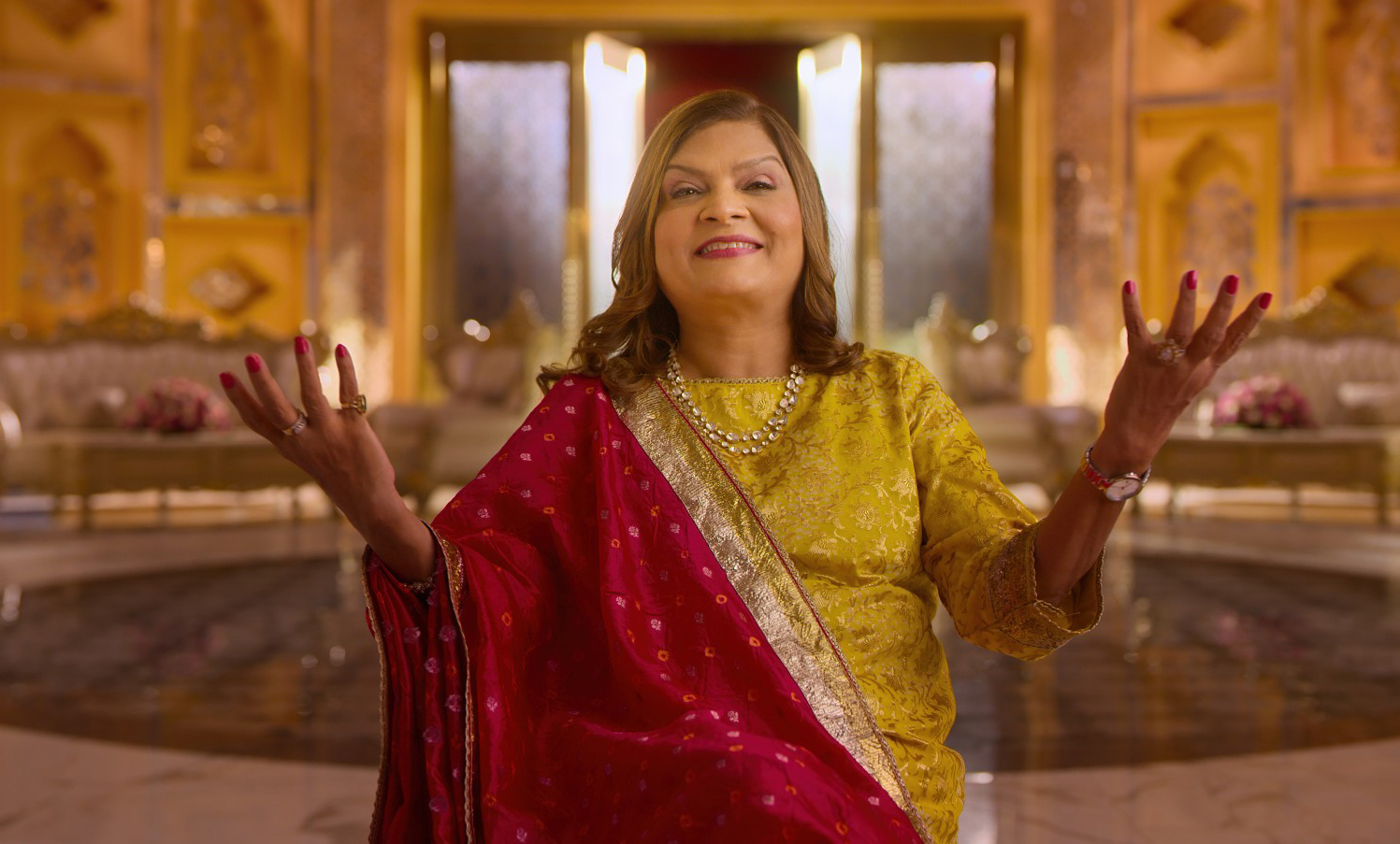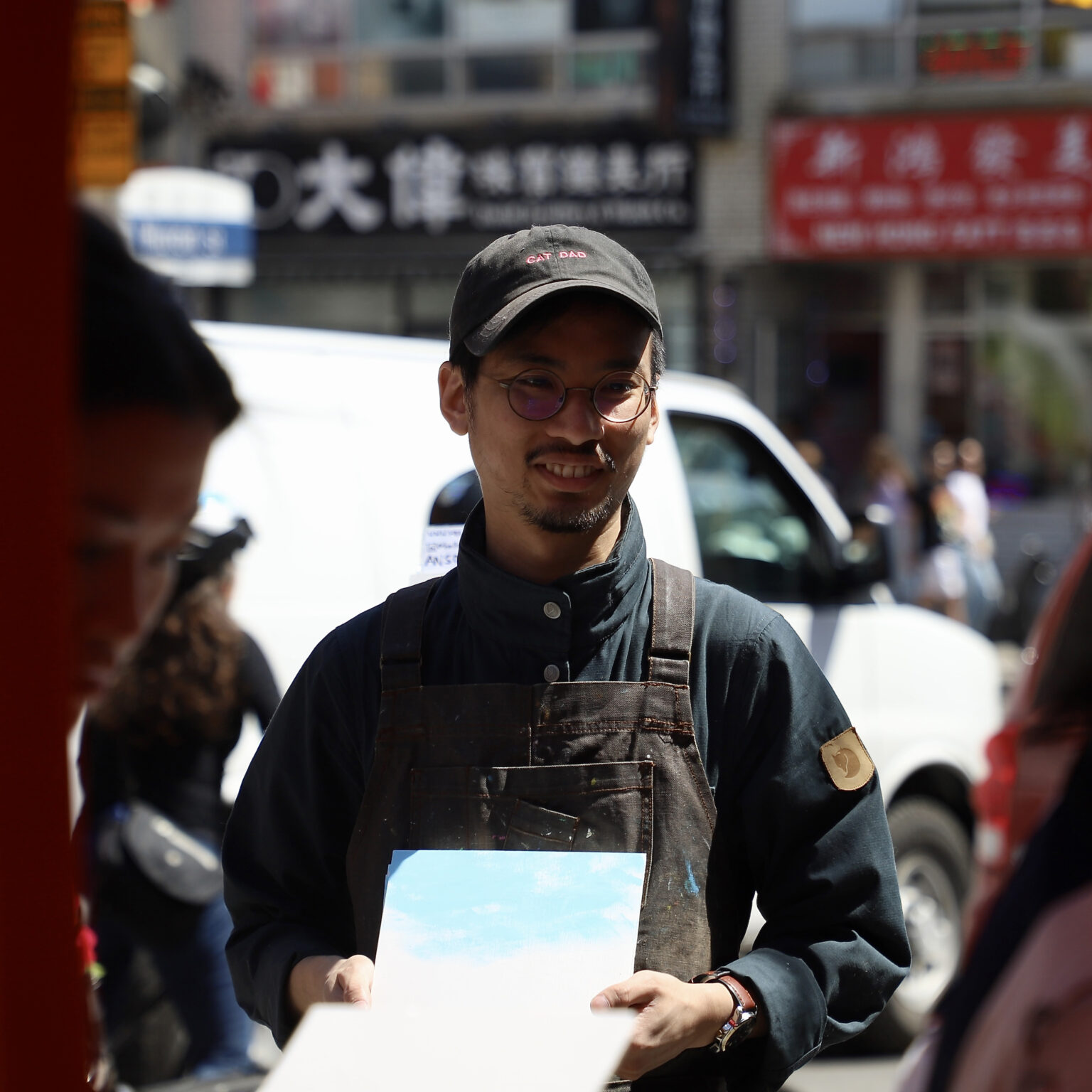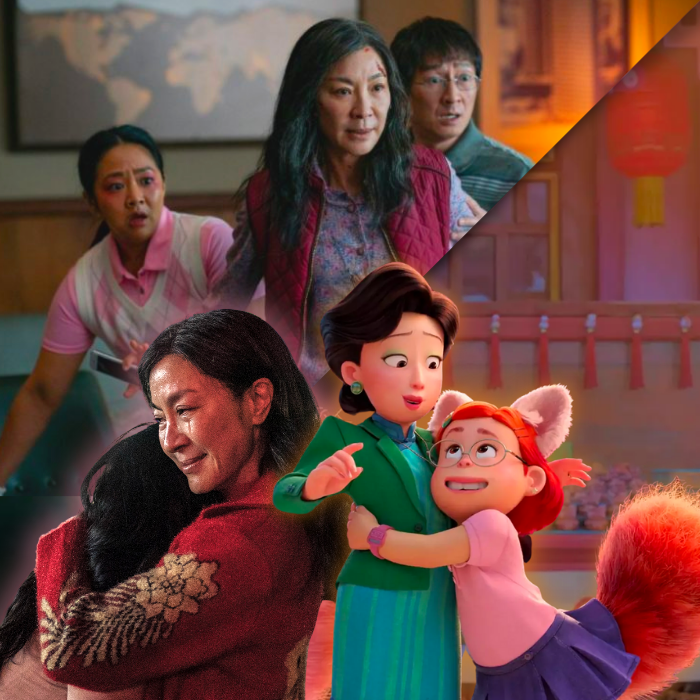Sima aunty is back and she’s more Sima aunty than ever.
On April 21, Netflix released Season 3 of its hit reality series Indian Matchmaking. The series picks up where last season left off with matchmaker Sima Taparia arriving in London, England — a place she loves for the good cars, social life, and serious business potential (20 per cent of the city’s population is “Asian,” referring to people of Indian, Pakistani, Bangladeshi and other Asian backgrounds). Over the course of eight episodes, we meet new singles in search of love and revisit couples from previous seasons. “No matter how many successful matches I make, matchmaking is a job that will never be finished,” says Sima aunty, the only cast member who has been consistent for the entire series.
We’ve followed Sima aunty’s journey as she tried to match millennial Indians in India and the diaspora for three seasons. The show gave us breakout favourites like the divisive lawyer-turned-author Aparna Shewakramani and the bubbly Nadia Jagessar, but there’s no question that “Sima from Mumbai” is the star. As Indian Matchmaking’s sole matchmaker, it’s her word against no one when it comes to what this process entails and what constitutes a “good match.” And while she’s here to help singles find love, she’s also the type of aunty that feels like she’d look you up and down, judge your chai-making abilities, and ask why you’re not married before asking how you’re doing. After three seasons, it’s clear that Sima aunty is the aunty Desis know, but not the aunty we need.
After three seasons, it’s clear that Sima aunty is the aunty Desis know, but not the aunty we need.
“Aunty is a term of endearment (and sometimes insult) used to describe an older woman,” defines artist Maria Qamar, better known as Hatecopy, in her 2017 book Trust No Aunty. These are the women who will simultaneously “make your life difficult, trying to get you married to their sons, and telling you to lose weight while simultaneously trying to feed you a second dinner.” During her book tour, Qamar added that “in Desi culture, an ‘aunty’ is a way to refer to an older woman as a sign of respect” but can also be a way of chirping “if they’re really old-school in their way of thinking.”
Sima has never been shy about her traditional approach to finding love. As she says in her intro, she’s been matchmaking for 20 years and has built a successful business. That said, from Season 1, she (and the show) received criticism for only showing a narrow version of the Indian matchmaking experience and simultaneously normalizing and perpetuating the more regressive aspects of this long standing industry such as caste, class, and community “preferences.” But rather than adapt, or as Sima might put it “adjust,” this aunty is simply doubling down.
From the beginning of this series, Sima has chastised today’s singles out for being “too picky,” telling clients they will only ever get 60-70 percent of what they want. The rest, they will have to compromise. And that math fluctuates based on how she perceives someone’s worth.
“She should not be so much picky because she has one disadvantage behind her, that she’s divorced,” Sima says in the first episode of Season 3, describing her new client, Priya, who for the record, is beautiful, successful, and a total catch.
When one of Season 3’s new clients, Vikash, says he’d like a partner who is from the Brahmin caste like him, Sima is “shocked.” “He doesn’t know anything about Brahmin, and he’s not practicing…Why does he want a Brahmin girl?” While on the surface, this seems like Sima pushing back against an outdated and discriminatory criteria, her issue isn’t that Vikash wants a Brahmin partner, it’s that he isn’t Brahmin enough to want a Brahmin girl. Ma’am, you’ve missed the point here.
And then there’s the issue of painting marriage as a must. Granted, it is her livelihood, but Sima appears completely out of touch with the evolving attitudes towards marriage. In the fourth episode, for instance, Sima and her family in India discuss the issue of age and the fact that many South Asians are getting married later or rejecting marriage altogether.
“Above 30, I know so many people now who are not married. And not even looking to get married any time soon,” says Sima’s son-in-law Aditya. Sima’s daughter Ritu agrees, adding that the “trend is changing now.”
“But it’s not a good thing if trend is changing,” Sima replies.

Her children push back, highlighting that women are pursuing education and careers and want more time to make a name for themselves, but Sima isn’t having it.
“Right age is up to 30…over 30, it’s late,” she says. As someone who is single and rounding nearing 34, this felt great. In fact, watching this season felt like getting reprimanded for being single.
In Season 3, we meet with the founders of modern Indian dating services, and it seems like we might finally get a look at Indian matchmaking beyond the world according to Sima. Sunil Hiranandani is the founder of Sirf Coffee, a “bespoke dating service for the global Indian” and defines itself as using “anti-aunties” to find connections. KJ Dhaliwal is the founder of Dil Mil, a San Francisco-based dating app for South Asian singles around the world. And Adeem Younis is the founder of SingleMuslim, a dating site and app specifically for Muslim singles.
The matchmakers trade stories about people lying about their age or being overly specific about arbitrary attributes like the length of a prospect’s hair. “No matter where in the world you go, no matter where in the world you are matching, the clients are same, difficult,” says Sima. In a massive missed opportunity, the show doesn’t show a meaningful discussion about the evolving needs and values of today’s singles and our approach to marriage. The takeaway remains that singles are the problem, not the system.
As Rushali, a model living in New Delhi, puts it, “It’s not that I’m being too picky or judge-y. I’m not. Like who am I to judge? But then, I know what kind of man I don’t want to end up with.” And with women fighting to shape our lives, successes, and happiness on our own terms, not in a way that fits others, knowing the values that you look for in a partner is crucial — like Rushali’s need for any potential partner to love and want to spend time with her family.
This isn’t to say that all of Sima aunty’s advice or approach is bad. She does push clients to expand their idea of what they want, and in Priya’s case, encourages her to have some tough conversations rather than ghosting a potential match. “Now the youngsters don’t have patience at all. They say that we want love at first sight. So many of them are not satisfied when they see a girl or a boy,” says Sima, which is a fair point, and yet at the same time, can come across as dismissive when a client is telling her that their date didn’t feel right. It’s a comment that reflects both wisdom and also a generational divide between aunties and uncles who saw marriage as a necessity and this generation who wants to find a partner that will add to their life, not just fulfill a criteria.
“I feel like Sima Aunty has an understanding, but like, culturally, she needs to be a little bit more geared to the idea that it’s not love marriage, it’s not arranged but it’s something in between, and that I’m willing to work, and she needs to work with me,” says Arti, one of the show’s singles who (spoiler alert!) ends up meeting a partner through Hinge rather than Sima. Arti adds that working with Sima, she never would’ve had the option of Jamal, the man she is now with, because he’s Muslim. “I don’t think Sima aunty would’ve ever matched us because he doesn’t meet the criteria that my parents had for me, and that’s okay because the person you’re supposed to be with, I believe, can be anybody.”
Perhaps it’s no surprise then that the only couples from Indian Matchmaking to get engaged are not couples who met through Sima.
We need aunties (and definitely matchmakers) who understand that anyone who makes us feel lesser than because of who we are or what we’ve been through is not worthy of our time, let alone our love.
Here’s the thing, I’m not denying that some people view being divorced, from a particular community, or over 30 as negative attributes for a potential partner. But we need aunties (and definitely matchmakers) who understand that anyone who makes us feel lesser than because of who we are or what we’ve been through is not worthy of our time, let alone our love. Matchmakers like Sima aunty also have the unique ability to help shift these narratives, setting a new standard for future generations. Those are the aunties we need, ones who will cheer us on, not add to a chorus of judgement.
“In today’s generation, the girl and the boy, the youngers are independent. They have their own mindset. They don’t listen to elders. That is the main point,” says Sima at the end of Season 3. But having your own mindset and listening to your elders are not mutually exclusive. Instead, the main point I took away from this season is that Sima aunty wants to be heard, but refuses to listen — and that’s not the type of aunty I would ever trust with my heart.
Like this post? Follow The RepresentASIAN Project on Instagram, TikTok and YouTube to keep updated on the latest content.











